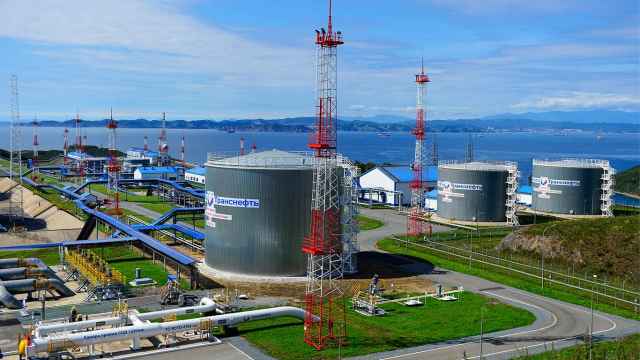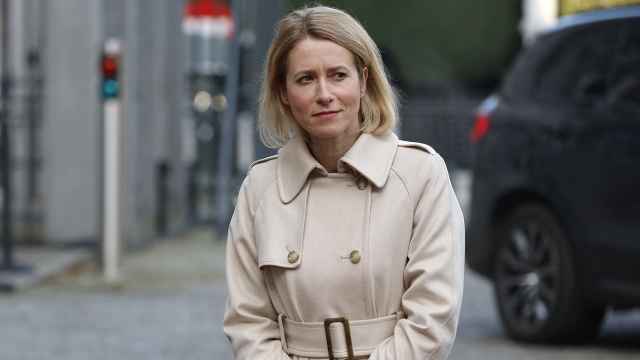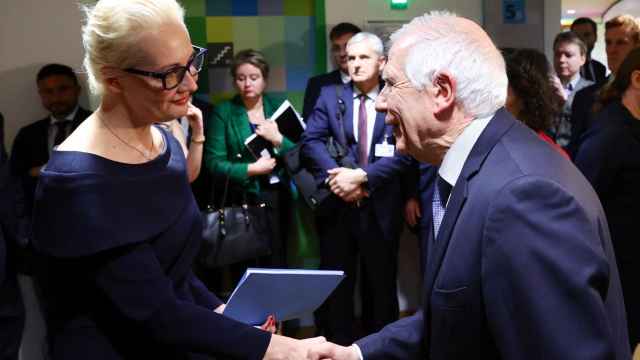New EU sanctions over Russia's war in Ukraine adopted on Saturday target 121 individuals and entities, including Iranian drone manufacturers, officials said.
The measures, which were formally adopted on Saturday, are the 10th round of European Union sanctions aimed at undercutting Russia's finances and military supplies used in its invasion of Ukraine.
They echo sanctions announced on Friday by the United States and the United Kingdom and follow up on a G7 statement that warned of penalties for any country abetting Russia in its war.
The successive round of EU measures are "the most far-reaching sanctions ever — depleting Russia's war arsenal and biting deep into its economy," European Commission chief Ursula von der Leyen said.
"We are also turning up the pressure on those trying to circumvent our sanctions."
The latest EU sanctions target an additional 96 Russian entities — meaning businesses or state agencies — including another three Russian banks, according to an EU statement.
Seven Iranian entities are included in this round, all manufacturers of self-exploding drones Russia has been using to strike Ukrainian targets including civilian infrastructure and residential buildings.
An export ban on industrial goods to Russia is expanded to include dual-use items such as electronics, specialized vehicles, machine parts, spare parts for trucks and jet engines, antennae, cranes, drones, rare earth materials, electronic circuits and thermal cameras.
Trade in those goods, which battlefield evidence suggests Moscow is using for its war, amounts to more than 11 billion euros ($12 billion), according to EU officials.
Sanctions on Russia's propaganda outlets were also stepped up, with moves to suspend the broadcasting licenses of the Arabic outlets of state-controlled media groups RT and Sputnik, which are already banned in Europe.
The measures also require EU member states to make more detailed reporting on assets seized from sanctioned Russians supporting the Kremlin, and the frozen funds of Russia's Central Bank.
A Message from The Moscow Times:
Dear readers,
We are facing unprecedented challenges. Russia's Prosecutor General's Office has designated The Moscow Times as an "undesirable" organization, criminalizing our work and putting our staff at risk of prosecution. This follows our earlier unjust labeling as a "foreign agent."
These actions are direct attempts to silence independent journalism in Russia. The authorities claim our work "discredits the decisions of the Russian leadership." We see things differently: we strive to provide accurate, unbiased reporting on Russia.
We, the journalists of The Moscow Times, refuse to be silenced. But to continue our work, we need your help.
Your support, no matter how small, makes a world of difference. If you can, please support us monthly starting from just $2. It's quick to set up, and every contribution makes a significant impact.
By supporting The Moscow Times, you're defending open, independent journalism in the face of repression. Thank you for standing with us.
Remind me later.






